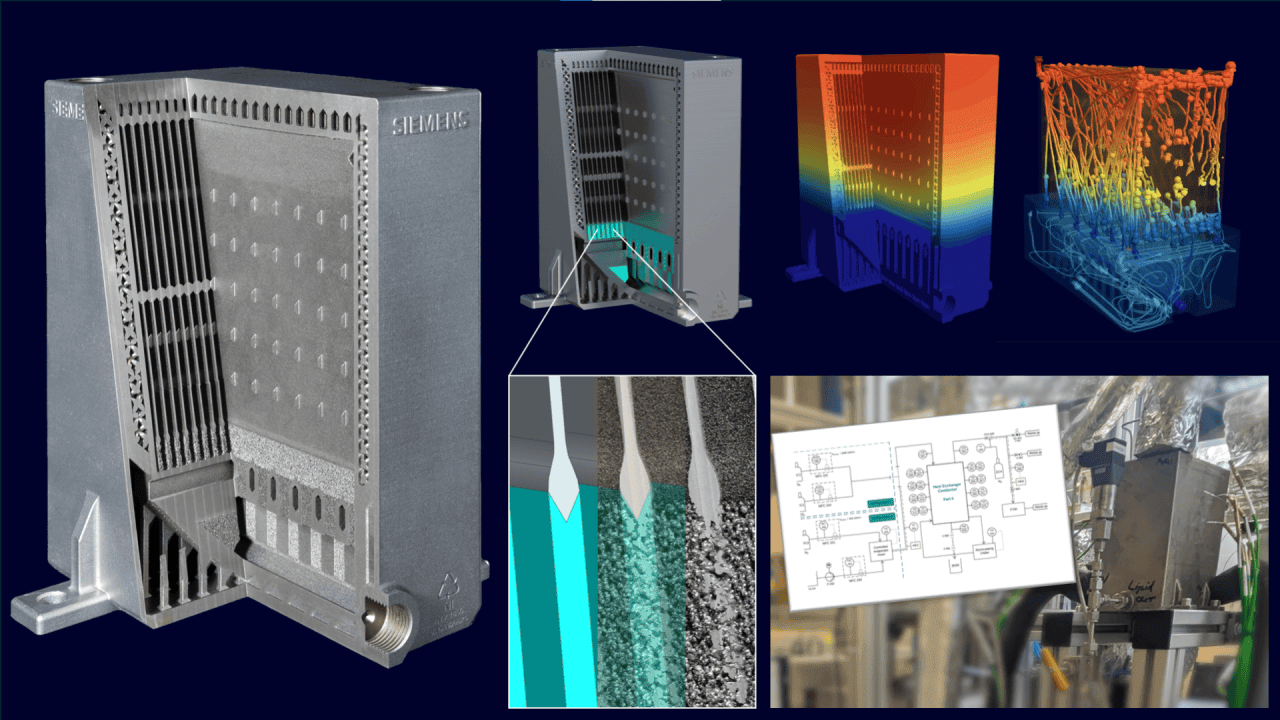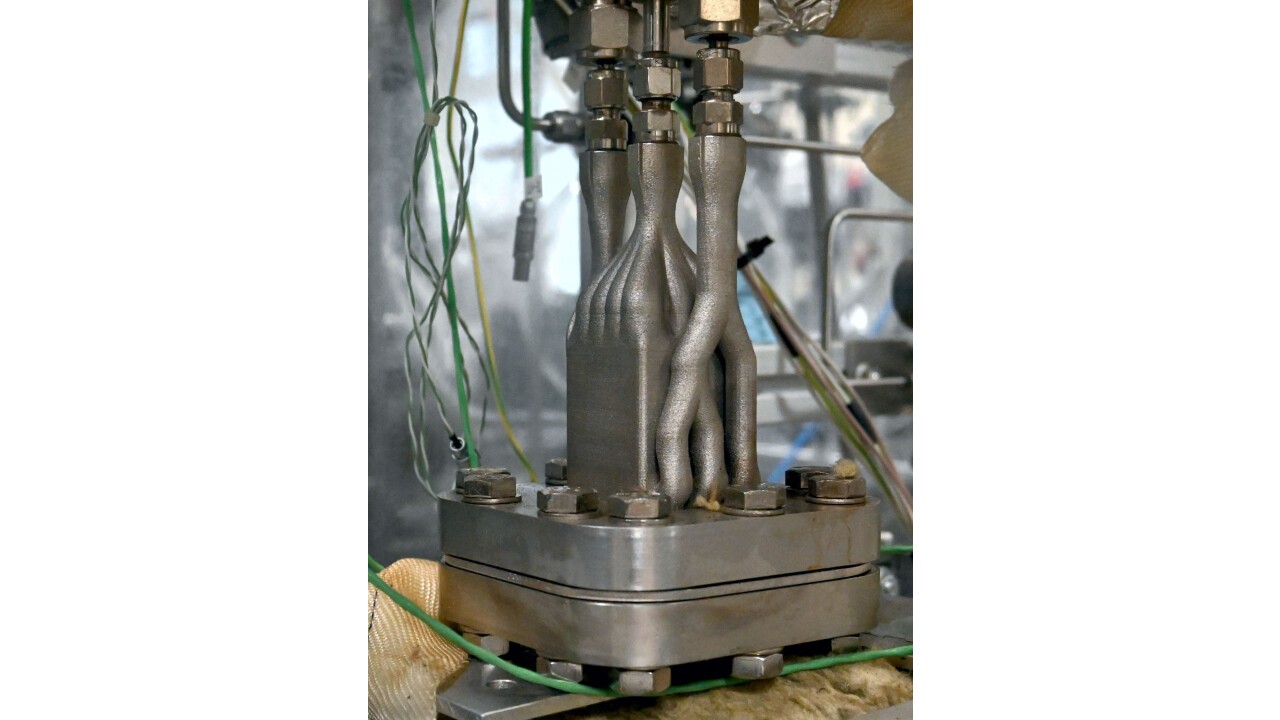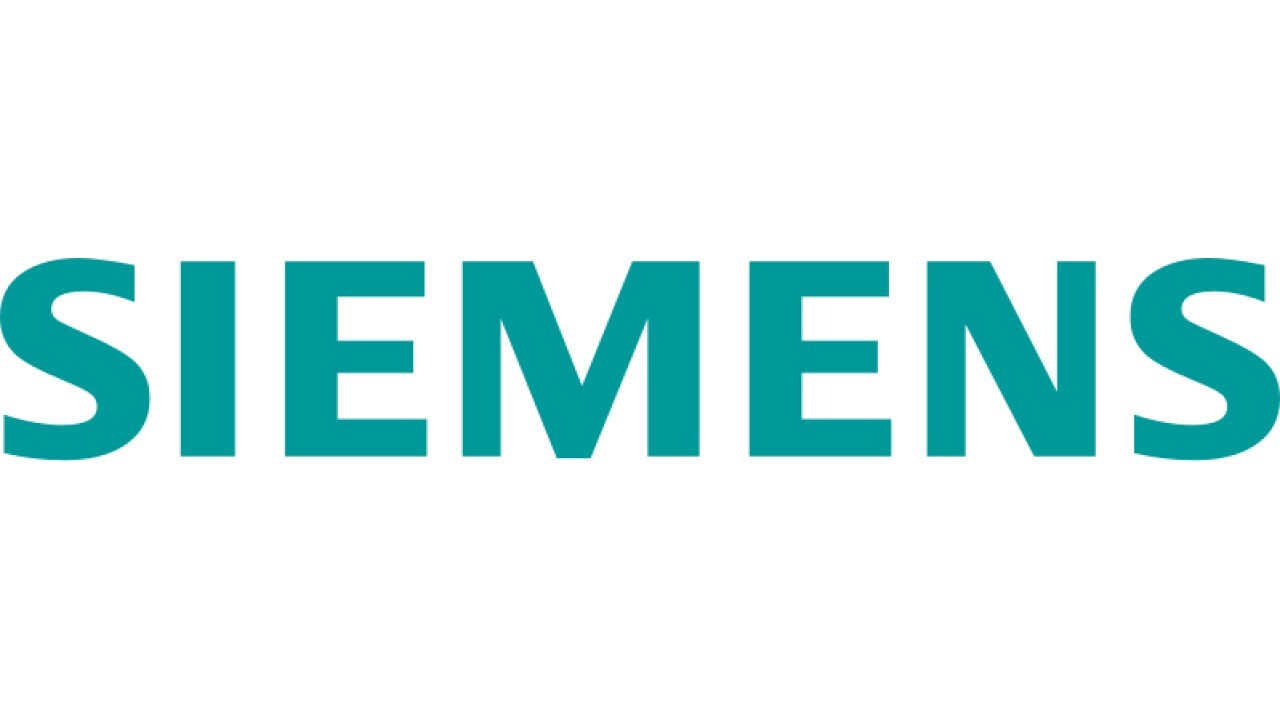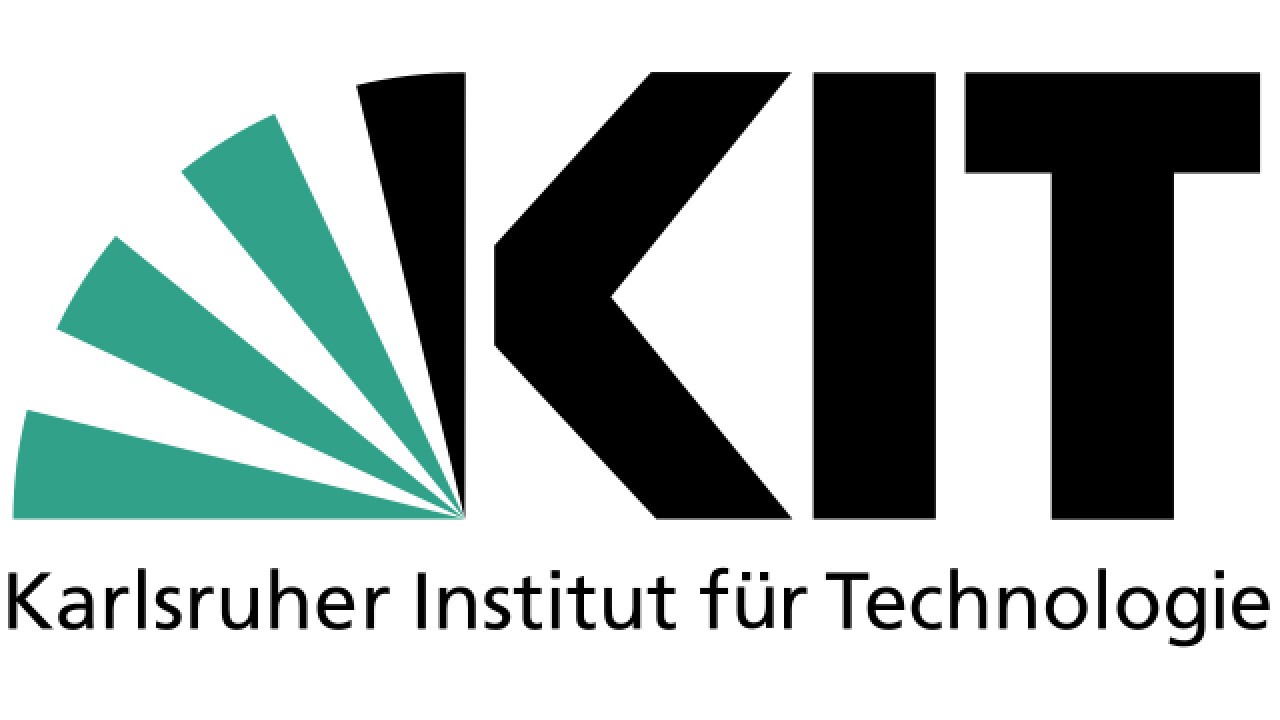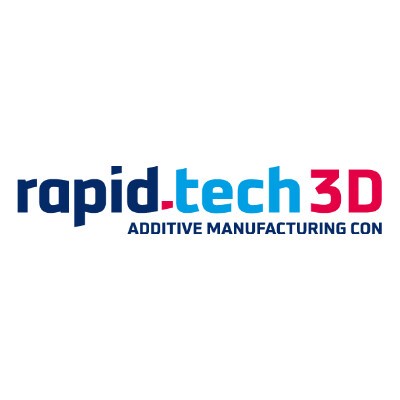Enabling the automatic creation of multifunctional components in both research and industrial settings
Components that generate complex, interconnected functionalities in application are often complicated in design and require a precise layout. Using process technology components as an example, we show new concepts for automated design.
Highly integrated equipment from Additive Manufacturing (AM) enhances efficiency in high-pressure P2X reactions like methanol synthesis. A digital engineering workflow combines process simulation, generative 3D design, and optimization tools for mass-customized components. The 3D-PROCESS project explored two approaches: (1) reactor design via thermodynamic modeling and catalytic kinetics using Rhinoceros/Grasshopper, and (2) parameterized separation technology (NX CAD) with heat transfer models. The digital toolchain integrates FEM (structural stress), CFD (fluid flow/thermal behavior), and process simulations. A reactor design automation toolbox reduced development time to ~50 minutes by converting inputs (pressure, temperature, catalyst properties) into optimized 3D geometries. Prototypes, including a compact separator with integrated heat exchangers and sensors, were validated via lab pressure tests. AM-enabled porous metal structures intensify processes and reduce assembly complexity. Funded by the German Federal Ministry, the project proves that digital twins and AM enable scalable, customized chemical equipment. This approach supports circularity by merging simulation-driven design with agile manufacturing for sustainable methanol production.
Presentation language: ENG
